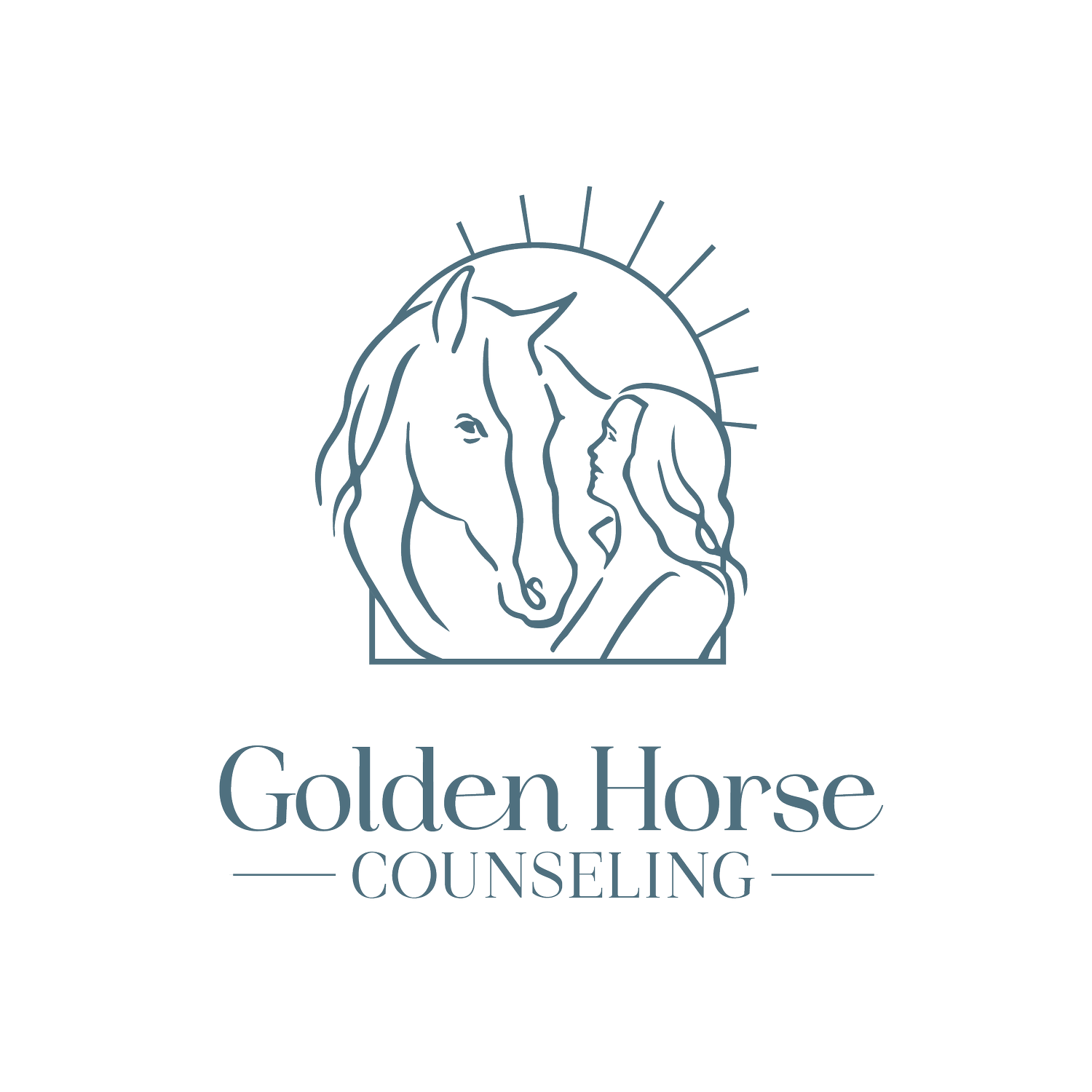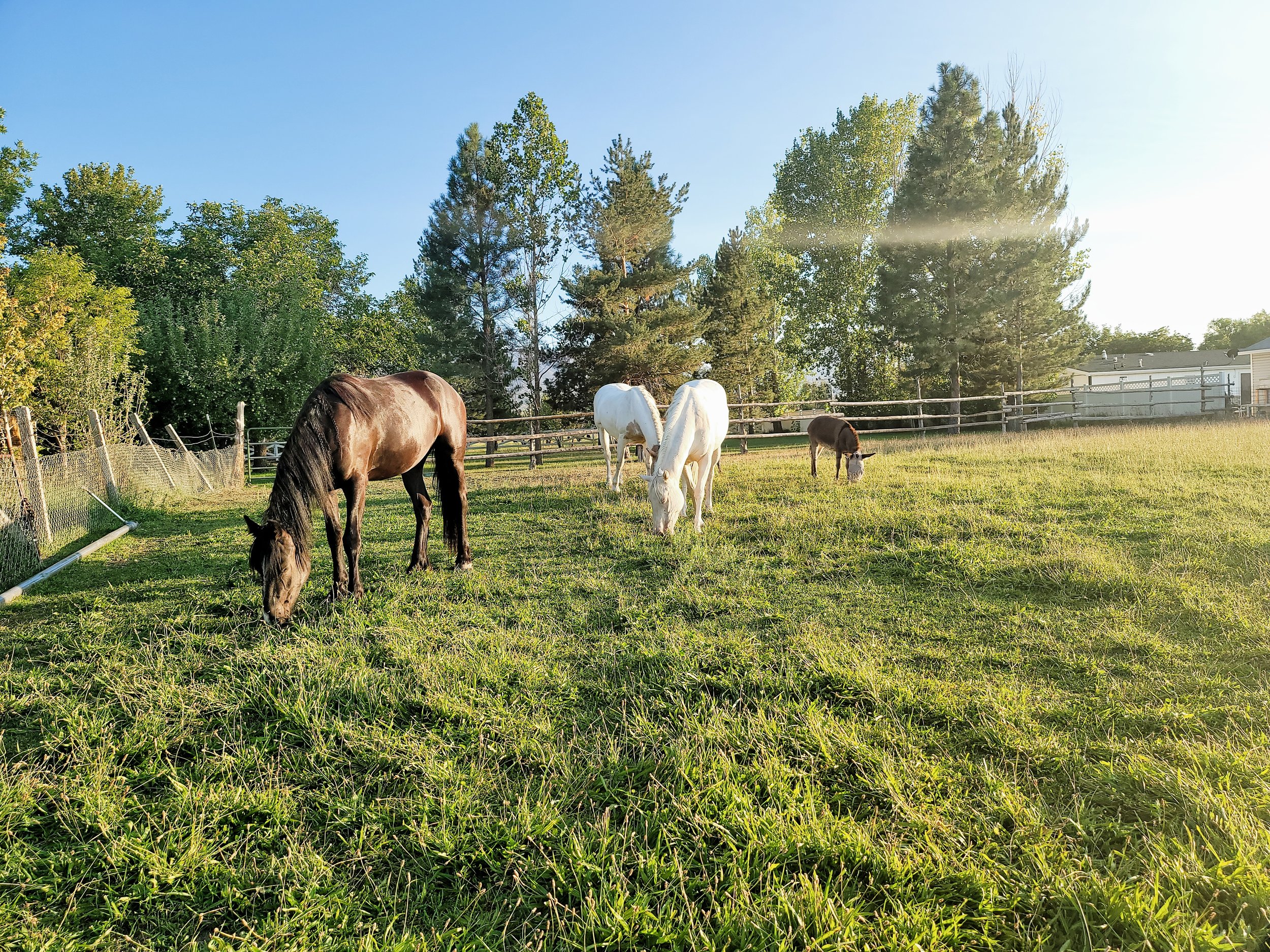The Herd - Safety in Belonging
In the herd, there are always two alpha’s, the alpha (female) mare and the alpha (male) stallion. For a flight or prey animal to survive thousands of years, alphas were necessary for survival, with all the members of the herd knowing and following this hierarchy. These two leaders have distinct and different roles within the herd; the alpha stallion is responsible for the danger and the threat outside of the herd and the alpha mare is responsible for the safety within the herd.
The alphas can orient to safety and tell the herd when to move their feet. They move the herd towards shelter, food, and water. They also know when the danger is near and when it has left and give the message to the herd to resume grazing. The herd moves, eats, and rests only with the alpha’s acknowledgement. With this hierarchy, the herd can move, eat, and rest in peace. There is order, belonging, and safety.
Make it stand out
Whatever it is, the way you tell your story online can make all the difference.
Within my herd there is Saint, the alpha mare and Rocky the alpha male. They allow Swayze who is too anxious, to find comfort. Beneath her Pearl, won’t even lift her head when there is threat because she has never needed to with the alphas. Lowest on the totem pole is Belle, the mini donkey, who will save herself by climbing underneath fences to escape to other pastures where the grass is greener.
Prey animals are not taught language, survival is based on being a great listener, or observer. Being able to notice the comings and goings around us, the hypervigilance to sounds or motion. The tone, the vibrato. Being able to sense the slightest shift in the atmosphere or energy. These are the ways horses listen.
We need an alpha like Saint or Rocky, who are leaders, confident and brave. Rocky who keeps a watchful eye and ear on situations, ready to inform the herd if needed but without causing alarm to others prematurely. Saint tracks the comings and goings of the herd from within, tracking the shifts and settling them by telling others where to go. Both alphas do something Belle, Swayze, or Pearl cannot. They speak, listen, and watch and they pass the information to the entire herd. They tell the herd to flee, or to go back to grazing. We need these two alphas with distinct roles. We need Rocky, who orients and turns towards the external surroundings, and Saint passes the information internally and tracks the entire herd.
Without the alphas to pass the notice the external, and pass the information internally to the herd, there is no return to grazing, or rest and digest. That flow of energy, communicated through the body is language. The twitch of an ear, the wrinkle of the nose, the direction of ears is the language of horses being passed through the herd.
A herd of horses is not unlike the human nervous system. Just as the superior colliculi orient us toward threat or safety, a herd relies on its alphas to discern danger and to signal safety. Without that orientation, there is no connection, no regulation, no rest.
Remove Saint and Rocky from sight, and panic sets in. In the absence of the alphas, someone else must assume control. Often Belle takes charge, and her instinct is to flee—deserting the others. Then Swayze steps up, unable to stop moving her feet, unable to pause long enough to assess danger. Anxiety builds and spreads. Pearl, oblivious, only runs if the others do, unaware of why the herd is even in motion. Without an alpha, there is no orienting, no grounding, no sense of reality.
This is why a good alpha is essential. Without one, the herd forgets what it knows—that it has strength, that it can flee, that safety exists. And so, it is with us. Without our internal and external alpha, we lose track of time and place. We forget we are adults, forget we have choices, forget we can survive.
In our nervous system, this means recognizing the self that knows—the self that can turn toward danger, orient to the present, and still rest. The alpha self holds both the pain of the past and the reality of now, moving us toward the future. It is compassionate and steady. It knows we’ve done the best we can, and that we can still learn. And it reminds us, again and again: you are safe—go back to grazing.


